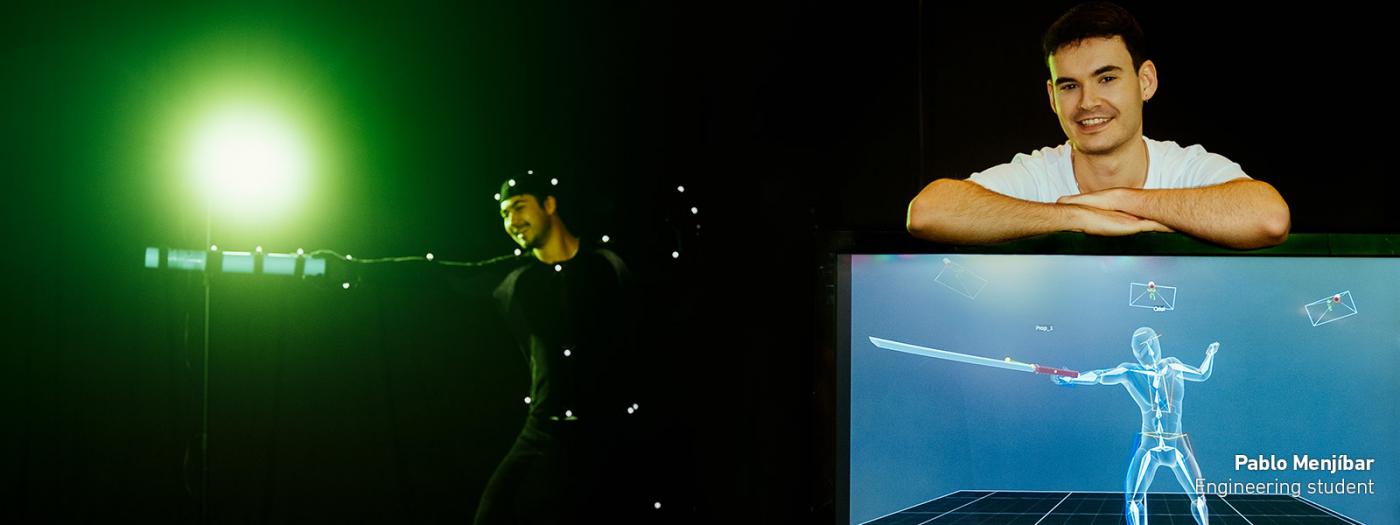A Knowledge-Based System uses a knowledge base to reason and solve complex problems. Thus, we could say that today any problem/system is a Knowledge Based System (KBS). The fundamental features that characterize a KBS are, as its name suggests, Knowledge, the Knowledge Representation, Reasoning and the Search that can be carried out on it. And these will be the axes that the subject will deal with.
Titular Professors
Professors
The goals will focus on:
- Know the scope of Artificial Intelligence and, in particular, the field of Knowledge-Based Systems.
- Be aware of the computational costs and the quality of the solutions of the different search algorithms.
- Be aware of the importance of knowledge, as well as how to deal with it.
- Develop a specific case: a Chatbot.
1. INTRODUCTION
2. KNOWLEDGE REPRESENTATION. REASONING
3. DESCRIPTIVE ANALYTICS
4. PREDICTIVE ANALYTICS
5. PROBLEM SOLVING. SEARCH
6. PROJECT: CHATBOT
The methodology used combines master classes, the resolution of exercises, student participation, and the development of a project. For the student, this will involve both individual and groups works, as well as conceptual exercises, implemented exercises, oral presentations and written presentations.
The course will follow two lines in parallel: 1) the master classes and the most conceptual exercises to advance the syllabus; and 2) the development of the project from the first day to the last class which will involve up to five deliveries: from the conceptualization of a Chatbot to its development with a final presentation.
The course has five exercises and a final project.
This subject will have a continuous assessment as follows:
FINAL GRADE = 40% Exercises_Grade + 60% Project_Grade; all exercises>= 5 and all parts of the project >=5
Exercises_Grade = 20% Assessment_1 + 20% Assessment_2 + 20% Assessment_3 + 20% Assessment_4
+ 20% Assessment_5
- Aamodt, A., & Plaza, E. (1994). Case-Based Reasoning: Foundational Issues, Methodological Variations, and System Approaches. Artificial Intelligence Communications, 7(1), 39-59.
- Bishop, C. M. (2006). Pattern Recognition and Machine Learning (1st ed.). Springer.
- Buchanan, B. G., & Shortliffe, E. H. (1984). Rule-Based Expert Systems: The MYCIN Experiments of the Stanford Heuristic Programming Project. Addison-Wesley.
- Ermine, J.-L. (1995). Expert Systems: The Technology of Knowledge-Based Systems. John Wiley & Sons.
- Giarratano, J. C., & Riley, G. D. (1994). Expert Systems: Principles and Programming (3rd ed.). PWS Publishing.
- Hall, D. (1988). Building Expert Systems. Addison-Wesley.
- Heaton, J. (2015). Artificial Intelligence for Humans: Fundamental Algorithms (1st ed.). Heaton Research.
- Jackson, P. C. (1981). An Introduction to Artificial Intelligence. McGraw-Hill.
- Merritt, D. (1987). Building Expert Systems in Prolog. Prentice-Hall.
- Mitchell, T. M. (1997). Machine Learning. McGraw-Hill.
- Negnevitsky, M. (2002). Artificial Intelligence: A Guide to Intelligent Systems (2nd ed.). Addison-Wesley.
- Nilsson, N. J. (1980). Foundations of Artificial Intelligence. Cambridge University Press.
- Pearl, J. (1988). Probabilistic Reasoning in Intelligent Systems: Networks of Plausible Inference. Morgan Kaufmann Publishers.
- Russell, S., & Norvig, P. (2010). Artificial Intelligence: A Modern Approach (3rd ed.). Pearson Education.
